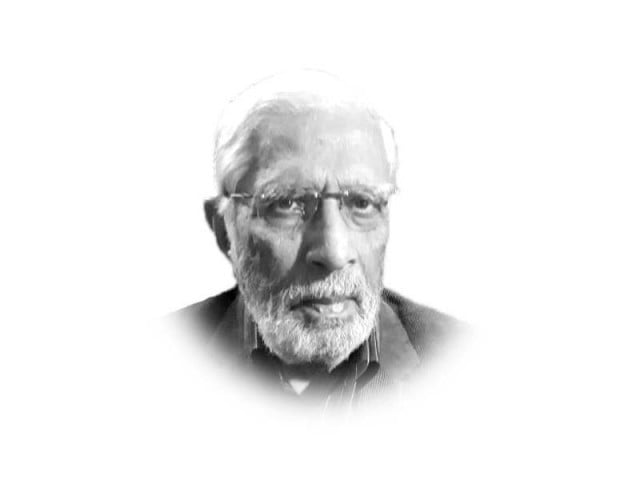
Taking full advantage of Islamabad’s current preoccupation with the deteriorating situation in Afghanistan, New Delhi has started redrawing the electoral boundaries in India-occupied Kashmir (IOK). In 2019 the disputed region’s semi-autonomous status was rescinded and tighter federal controls introduced.
Now, the delimitation programme envisions breaking up the electoral constituencies of the erstwhile semi-autonomous state into several new voter units in a manner that’s likely to give numerical heft to the southern region of Jammu, where there is a larger concentration of Hindu voters.
New Delhi has also begun opening ownership of land in IOK to outsiders, started rolling out residency permits for non-Kashmiri Indians, escalating fears that the Kashmir Valley would be swamped with outsiders, turning the local Muslim-majority population into a political minority in their homeland.
In two years of federal rule in the region, domicile rights were given to thousands of non-locals who had served or stayed in the region. Most of these new residents have settled in Jammu, which political experts believe will alter the electoral demography of IOK in the long run.
Meanwhile, the share of Kashmiri candidates entering the Indian civil service has been reduced from 50% to 33%, which in the future will increase the number of non-local officers in Kashmir’s administration.
New Delhi has also empowered the Indian armed forces to declare any area in the disputed region as “strategic” and ended the 131-year reign of Urdu as the sole official language of the region.
The altered demographics and a reconfiguration of electoral constituencies are expected to allow Hindu-nationalist politicians to realise their longstanding goal of installing a Hindu chief minister in IOK.
Modi’s Hindu-nationalist government has also started to enforce hundreds of federal Indian laws and policies in IOK while at the same time it has dismantled structures of self-government in IOK.
Under the smokescreen of electoral redistricting, New Delhi is using gerrymandering to politically neuter the region’s Muslim majority.
After the abrogation of Article 370, the BJP-led Indian parliament passed the Jammu and Kashmir Reorganisation Act of 2019, adding seven more seats for the region and making a delimitation exercise imperative.
Until August 2019, Jammu and Kashmir had 111 seats in its state legislative assembly. The Muslim-majority Kashmir Valley had a share of 46 seats, while Jammu had 37. Also, 24 seats were reserved for the people of Azad Kashmir, which India claims.
However, the BJP in Kashmir proposed to use geography as a criterion while demarcating boundaries of new assembly segments. Besides geography, the BJP and other Hindu-nationalist groups in Jammu demand other parameters like facilities of communication and topography of the constituencies to be considered while redrawing the seats, which would tilt the numerical strength of the seats in favour of Jammu.
However, the Hindu-dominated Jammu area is geographically larger in size (10,100 square miles) than the Muslim-majority Kashmir Valley (6,100 square miles). Also, the BJP has been demanding to reserve seats for socially disadvantaged groups from the Hindu community, known as scheduled castes or Dalits. (Their numbers in the region are disputed.) The party has also proposed to reserve seats for the tribal groups and Kashmiri Pandits (Hindus) who migrated to Jammu in the 1990s when a popular insurgency erupted in the Kashmir Valley against Indian rule. It has proposed to exclusively reserve seats for Kashmiri Pandits in Kashmir, thereby reducing the overall number of general seats for the Kashmir Valley.
Other than these groups, the BJP is also likely to reserve seats for refugees who migrated from Pakistan and settled in Jammu during the India-Pakistan wars in 1947 and 1965. These moves are seen as attempts to increase the share of seats in Jammu, where the BJP has a major foothold, leading to more political gains for the party at the cost of other regional parties.
These political parties fear that Muslim-majority assembly constituencies in Jammu would be declared as “reserved constituencies” for Dalits and Pandits, thereby denying Muslims political participation. There are also fears that Jammu’s Muslim-majority areas could be dispersed across seats due to politically motivated redistricting so that their numerical strength is diluted.
Published in The Express Tribune, August 14th, 2021.
Like Opinion & Editorial on Facebook, follow @ETOpEd on Twitter to receive all updates on all our daily pieces.



1732243059-0/mac-miller-(2)1732243059-0-165x106.webp)

1672385156-0/Andrew-Tate-(1)1672385156-0-165x106.webp)







COMMENTS
Comments are moderated and generally will be posted if they are on-topic and not abusive.
For more information, please see our Comments FAQ